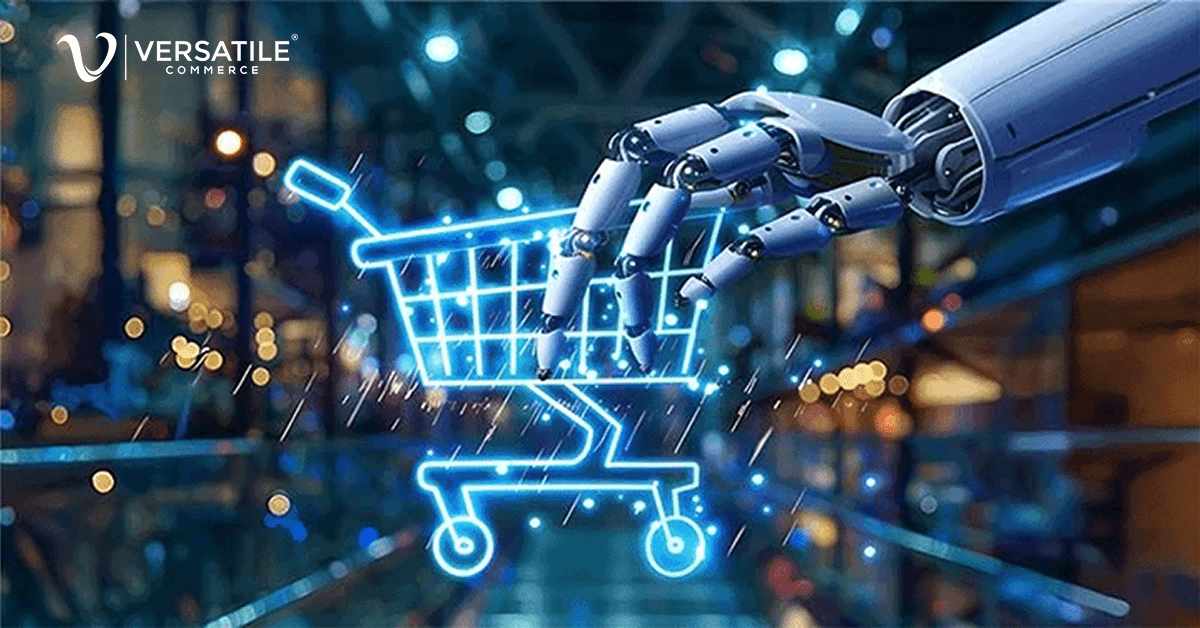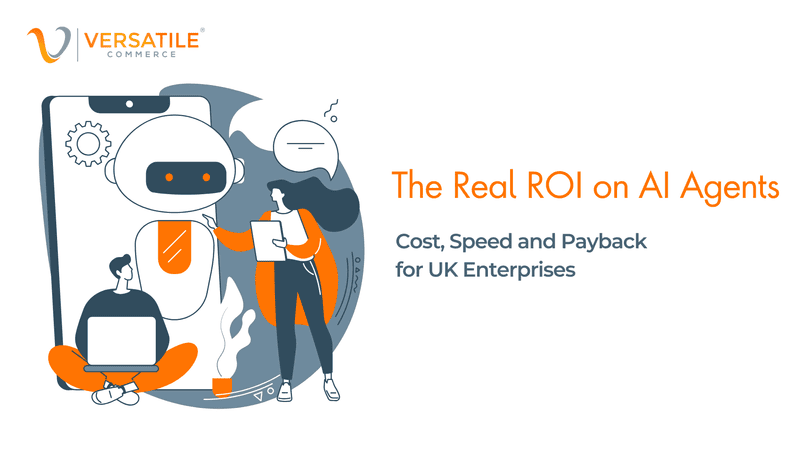
Artificial intelligence (AI) is rapidly reshaping the eCommerce landscape. As consumer preferences evolve, businesses are increasingly relying on AI technology to offer tailored experiences, optimise operations, and boost revenue.
Artificial Intelligence in eCommerce goes beyond automation—it enables a deeper understanding of customer behaviours, predictive analytics, and personalised marketing, resulting in enhanced customer engagement and satisfaction. A recent Forbes advisory report has revealed that 64% of businesses believe that AI can increase their productivity.
The Role of AI in Personalising Customer Experiences
Personalisation has become the cornerstone of modern online shopping. AI-driven recommendation engines analyse vast amounts of data from browsing patterns, purchase history, and customer preferences. Platforms like Amazon and Netflix utilise AI to suggest products and content that are relevant to users. According to a study conducted by McKinsey, personalised recommendations contribute to up to 35% of Amazon’s revenue.
AI-powered personalisation tools also enable targeted marketing, helping brands send customised promotions to different customer segments. This not only enhances the shopping experience but also improves conversion rates by 10-15%.
Enhancing Inventory Management with AI Technologies
Efficient inventory management is crucial for eCommerce businesses to avoid stockouts or overstocking. AI-powered demand forecasting tools help businesses predict trends by analysing historical sales data, market conditions, and even external factors like weather or holidays. According to industry reports from McKinsey, AI-enabled inventory management systems can reduce inventory costs by up to 20% and stockouts by up to 50%.
AI tools also enhance supply chain optimisation, automating stock replenishment and providing real-time insights into product availability. This minimises waste, reduces holding costs, and ensures businesses are stocked to meet demand without overburdening their inventory.
How AI Chatbots Are Revolutionising Customer Service in Ecommerce
AI chatbots are transforming customer service by offering 24/7 support and resolving customer queries in real time. Unlike traditional customer service models, AI chatbots provide instant responses, guiding customers through their purchase journey. These virtual assistants in ecommerce can answer FAQs, assist with order tracking, and even handle refunds autonomously, improving customer satisfaction.
For example, chatbots are estimated to handle up to 80% of routine customer interactions, significantly reducing customer service costs (Master of Code Global 2024 report). In addition to automation, these chatbots utilise Natural Language Processing (NLP) to offer a conversational experience that feels personal and interactive.
The Impact of AI on Pricing Strategies and Dynamic Pricing Models
Dynamic pricing, driven by AI, allows businesses to adjust prices based on real-time market trends, demand, and competitor pricing. This results in price optimisation, enabling businesses to remain competitive while maximising profits. AI pricing algorithms consider multiple factors like product popularity, seasonality, and customer behaviour to set the optimal price.
Companies like Amazon have implemented AI-powered dynamic pricing models, which change prices thousands of times per day to align with market conditions. According to a recent Datategy report, this approach can increase customer interaction by 25% and sales conversion rates by 30%, ensuring products are always competitively priced.
Embrace the Future with AI into Your Ecommerce Strategies
For eCommerce businesses to remain competitive, integrating AI into their operations is no longer optional. The benefits of AI are clear—personalised experiences, enhanced customer service, efficient inventory management, and dynamic pricing. Companies looking to succeed in the future should invest in AI tools that meet their specific needs, whether it’s for personalised marketing, customer engagement, or operational efficiency.
The future of eCommerce is AI-driven, and businesses that embrace this transformation will be well-positioned to thrive in the digital age. By leveraging AI in your eCommerce strategy, your business can tap into the immense potential of data-driven decision-making, ensuring sustainable growth and enhanced customer satisfaction.



